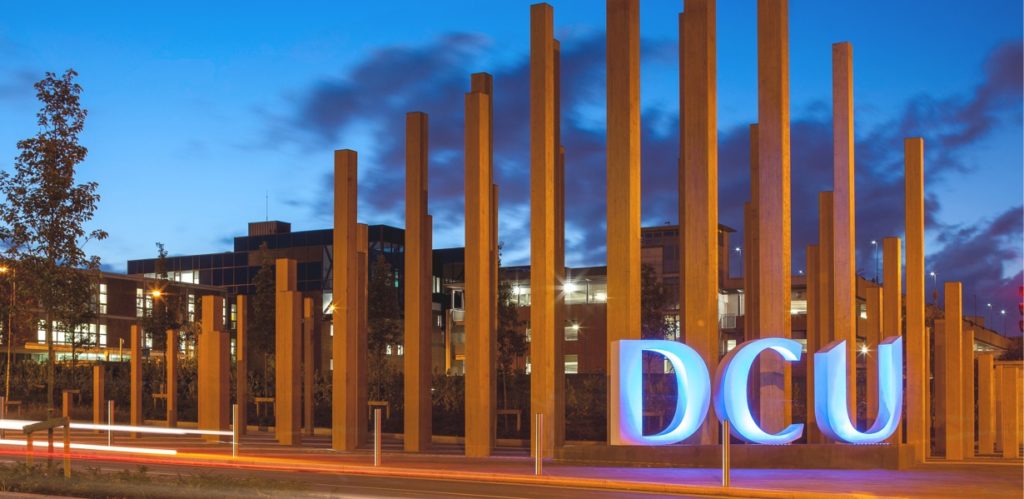DCU School of Inclusive and Special Education is offering four funded full-time PhD scholarships for the duration of four years, commencing in September 2024. Thanks to matched funding from philanthropist Paul Kerley and Bank of Ireland, the four full-time PhDs will enable research on Autism education in post-primary schools across a range of themes including developing neuro-affirmative practices in mainstream schools, supporting the academic success of Autistic learners, supporting their wellbeing in schools, and understanding the experience of Autistic girls in post-primary school.
DCU School of Inclusive and Special Education
The School of Inclusive and Special Education is one of six schools within the DCU Institute of Education and it is the only such school in an Irish university. It has a critical mass of expertise in areas of inclusive education and special education and is dedicated to supporting the rights of all children and young people to high-quality education and to learning for all. The School provides a full range of Level 9 continuing professional development programmes in inclusive and special education. It also contributes to the University’s initial teacher education programmes and taught doctorate programme. The School hosts the newly established Centre for Inclusive Pedagogy which includes a vibrant and dynamic community of educational researchers committed to conducting and sharing internationally significant research that will develop an understanding of pedagogy to support the inclusion of all learners in education.
DCU Institute of Education Autism Education PhD Scholarship Details
The successful candidates will enjoy a range of supports within the University and the Faculty, including Graduate Training Elements as well as having the opportunity to interact with research students and staff members. In addition, the research students will be mentored by members of their supervisory panel to develop their capacities to teach at third level, particularly in the context of education. The research students are expected to commence their studies on or before 1st September 2024 and to attend the University Orientation and Induction Programme for Postgraduate Research Students and contribute to Faculty activities commensurate with their studies. In addition, for a growth in doctoral student numbers to be impactful, we also need to ensure that all our students have the necessary supports and supervision to publish during the doctoral journey, at a level reflecting good performance for their discipline.
In this call, we invite applications in the area of Autism Education with a focus on the following themes:
1) Developing Neuro-Affirming Practices in Mainstream Schools
When it comes to planning and learning, the education of autistic learners has historically been guided by a medical model that focuses on the remediation of perceived deficits. This has meant that educators rarely seek the opinions of autistic people when developing policies and supports, and autistic people are often excluded from the decisions affecting their lives. These approaches to educational policy, practice and research are at odds with the neurodiversity perspective, which views autism as a natural form of human variation, inseparable from an individual’s identity. This much-needed PhD research would aim to develop a neurodiversity-affirming framework in teaching and learning to effectively meet the needs of autistic learners. Understanding the educational experiences of autistic people is an important first step in developing a more inclusive and accepting approach to education. Building on this, the research would support teachers to use a neurodiversity affirming framework in the classroom, with the goal of enhancing teachers’ confidence and competence in autism education.
2) Learning and Achievement for Autistic Learners
An aptitude for specialised interests and academic pursuits means that many autistic people should flourish in academic settings. Yet amidst the increasing shift in education policy towards the inclusion of autistic learners in mainstream education, there are increasing concerns surrounding the academic achievement of autistic adolescents, with reports of poor academic outcomes in comparison to their neurotypical peers. Interviews with autistic students and their parents have shown that students have a clear desire to further their learning as they transition out of secondary education. However, they have real concerns over the readiness of post-secondary institutions to meet their needs. These concerns are
validated by studies showing that the completion rates for autistic students in post-secondary education are substantially lower compared to their neurotypical peers in US and the UK. This PhD research aims to address the significant gaps in understanding how best to optimise academic achievement for autistic learners.
3) Supporting Wellbeing among Autistic Learners in Schools
Research reports increased levels of anxiety among autistic individuals in comparison to their non-autistic peers, with anxiety reported as the most common co-occurring condition among autistic individuals. Despite the prevalence of anxiety for autistic learners, there are major gaps in our understanding of anxiety and how best to support autistic individuals dealing with anxiety within education and society. This is especially concerning given the emerging evidence of increased stress, anxiety and uncertainty among autistic individuals during the COVID-19 pandemic, with the impact of the pandemic on the social and emotional well-being of students likely to continue far into the future. This PhD research aims to explore the experiences of autistic learners in relation to anxiety and well-being to support evidence-based approaches to support a positive learning experience.
4) Autistic Girls and their Experience of Autism
There are significant gaps in our knowledge and research of the experiences of autistic females, not only in education but in society at large. To date, much of the research has focused on a male perspective of autism, and the voices of autistic girls are often overlooked. Emerging research, both nationally and internationally, highlights the unique experiences of autistic girls and calls for the development of our knowledge and capacity in this field. Furthermore, there are many gaps in our understanding of autism, which many argue is based on a male-dominated perspective, leading to difficulties in diagnosis and subsequent support for many autistic females. It is fundamental that we develop our knowledge and understanding of autism from the female perspective so that we can best support autistic females in education and society. This PhD research aims to identify effective approaches that support the academic and emotional well-being of autistic girls.
Criteria: The ideal PhD candidate will have:
-
A minimum 2.1 honours level undergraduate degree or preferably a master’s qualification in a relevant domain
-
Hold a teaching qualification or have experience of working with young autistic people
-
Evidence of a high standard of critical research and academic writing skills;
-
A high level of competence in written and oral communication;
-
The ability to work independently and collaboratively in meeting demanding research goals.
-
Applicants should have a specialised interest in an area of Autism Education and have developed a research proposal that will lead to a research degree of PhD. The successful candidate will be required to register for a full-time research degree (PhD) at DCU Institute of Education. The successful candidate will be allocated a supervisory panel for the duration of their studies which will contain at least one primary supervisor and an Independent Panel member. The successful applicant will meet the eligibility requirements of Postgraduate Research students at IoE, Dublin City University as follows:
-
PhD: Candidates holding an appropriate Master’s degree obtained by research may apply for direct entry to the PhD register to conduct research in a cognate area.
-
PhD-track: Candidates with a taught Master’s degree in an appropriate discipline with first or second-class honours, and candidates with a primary degree in an appropriate discipline with first or second-class honours, grade one, may apply and be considered for entry to the PhD-track register with a view to proceeding towards a PhD. Such candidates will undergo a confirmation procedure, as outlined in the Academic Regulations, before being admitted to the PhD register.
The PhD scholarship is fully funded, inclusive of an annual stipend of €22,000 plus tuition fees, for four years.
How to Apply:
Please email the following documents to [email protected]. The closing date for receipt of application documentation is 5 pm Tuesday 25th June
-
Cover letter
-
Full Curriculum Vitae
-
Copy of transcripts of qualifications
-
Research proposal – please choose one of the four themes outlined above. Please use the DCU Institute of Education Research Proposal Form available here.
-
Please put DCU IoE Autism Education PhD Scholarship in the subject bar of all email communications
All shortlisted applicants will be interviewed via Zoom. Interviews will take place the week commencing 1st July.
Informal enquiries can be sent to Dr Aoife Brennan, Head of School of Inclusive and Special Education: [email protected].
Explore Dublin City University (DCU) for postgraduate courses on Postgrad.ie.
Dublin City University offer a range of taught and research programmes to doctoral and masters level and have a distinguished record in providing continuing professional development.
The Institute courses are delivered in a context characterised by innovation and development, scholarship, research and excellence in teaching and learning. Embedded in our programmes is a deep commitment to equity, social justice and inclusion.
Students who undertake the courses will have a formative impact on development within schools, workplaces and the broader education community. DCU see this as both a responsibility and a privilege, and work hard to ensure that the programmes meet your needs.












Am impressed with the program of the institute and earger to persue PhD in the area of special needs ASD.i have masters degree in special needs education from maseno University and currently handling learners with Autism